Search
Remove Ads
Advertisement
Summary 
Loading AI-generated summary based on World History Encyclopedia articles ...
Search Results

Article
The Aftermath of Looting: Illegally Excavated Mesopotamian Tablets
He who saw everything in the broad-boned earth, and knew what was to be known, Who had experienced what there was, and had become familiar with all things. The Epic of Gilgamesh. The tornado has started After the US-led invasion of...
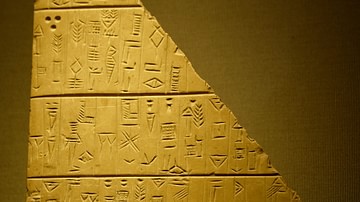
Image
Mesopotamian Tablet with Puchase Details from Dilbat
This tablet lists purchases of land by a man named Tupsikka, with payments made in baskets of barley. One transaction reads "The price of the field is 90 gur-sag-gal 16 quarts of oil". Stone tablet, about 2400-2200 BCE. Excavated by Hormuzd...
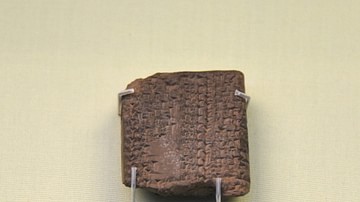
Image
Mesopotamian Tablet on Marduk
Babylonian tablet, a scholar speculating on how powerful, independent Mesopotamian gods can be seen as aspects of the god Marduk. From Babylon, Southern Mesopotamia, Iraq. Neo-Babylonian Period, reign of Nebuchadnezzar II, 605-562 BCE. The...
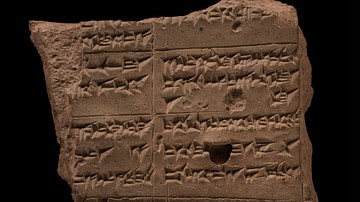
Image
Mesopotamian Tablet with Proverbs
Fragment of a Neo-Assyrian clay tablet, with 8 lines of bilingual text, including proverbs and riddles, from the Library of Ashurbanipal, Kouyunjik, Iraq.
The British Museum, London.
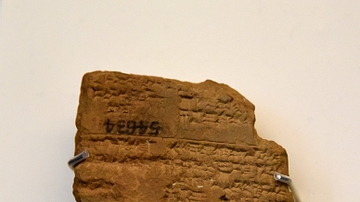
Image
Mesopotamian Tablet Describing the Walls of Babylon
This clay tablet fragment gives detailed measurements for the inner city wall called Imgur-Enlil at the start of Nebuchadnezzar II's reign. It names landmarks including Zababa and Urash gates. Modern surveys show that the figures are realistic...

Image
Mesopotamian Tablet Naming Belshazzar
This adminsitrative document is dated to the "24th day of Kislimu in the 11th year Nabonidus, King of Babylon". It mentions "a slave of Bel-sharra-usur (Belshazzar),son of the king". Although Belshazzar is acting as regent, the formal date...
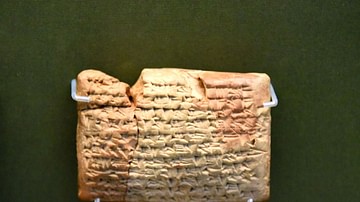
Image
A Mesopotamian Tablet with Gynaecological Recipe Against Miscarriage
A medical recipe was written on this clay tablet to prevent miscarriage. It recommends that a women should wear for 3 days a particular species of dried edible mouse which has been stuffed with myrrh. Probably from Babylon, Mesopotamia, Iraq...
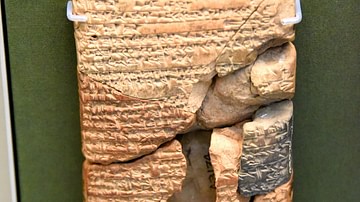
Image
A Mesopotamian Tablet with Gynaecological Treatments
Recipes were written in cuneiform inscriptions. They concern conditions such as infertility and pregnancy. Probably from Babylon, Mesopotamia, Iraq. Circa 600-400 BCE. (The British Museum, London)

Article
Mesopotamian Education
Mesopotamian education was invented by the Sumerians following the creation of writing c. 3500 BCE. The earliest schools were attached to temples but later established in separate buildings in which the scribes of ancient Mesopotamia learned...
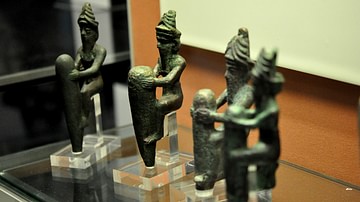
Article
Ancient Mesopotamian Beliefs in the Afterlife
Unlike the rich corpus of ancient Egyptian funerary texts, no such “guidebooks” from Mesopotamia detail the afterlife and the soul's fate after death. Instead, ancient Mesopotamian views of the afterlife must be pieced together from a variety...